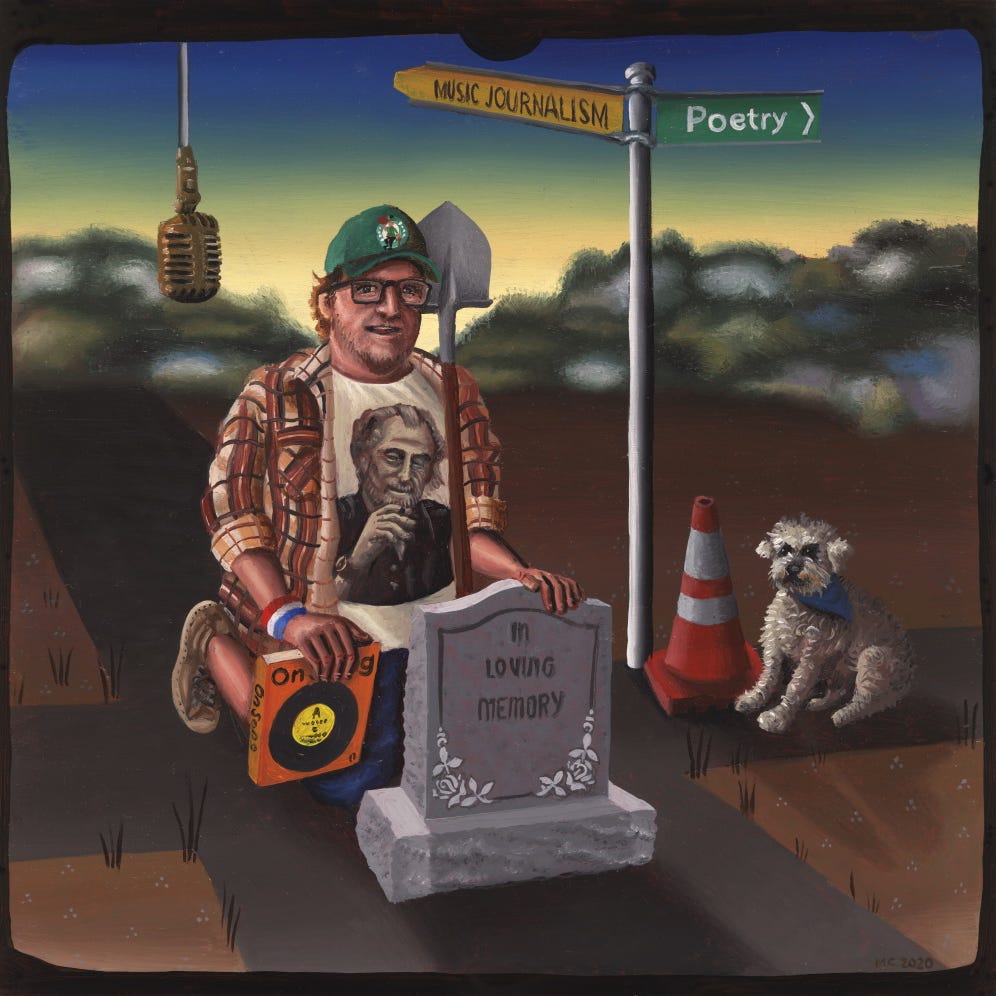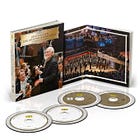Music by John Williams
Monday is about movies and sometimes TV. Today, a review of the new John documentary "Music by John Williams" on Disney+
I’m cancelling Disney+ this week — well, I pre-cancelled it way back, didn’t renew it. We’ve been paying for it for years, as it’s more than doubled in price. At first it was a birthday present for Oscar from his grandparents — and great for Simpsons, Pixar and Marvel, which were big pieces of the viewing puzzle for him.
But, days go by, weeks even, and we don’t watch a thing. Sure, it was good for The Bear.
Three Seasons of The Bear
But that’s on a season-break. So I’m not saying this is the end of Disney in our house forever. But also, maybe I am.
There are some good National Geo docos on there, there’s the odd thing, but where it once seemed it had everything, you realise now it’s like the sections of the video store you purposely did not visit. It’s jam-packed with content. Not a lot of heart. We could say the same of all streaming devices, and then let the mirror point to the hypocrite in the room of course. We’re all signed up to something or other.
I was pleased to still hold on to Disney long enough to watch Music by John Williams, a documentary just out and celebrating the greatest soundtrack composer in the history of cinema, the king of the modern blockbuster, creator of themes within themes, and individual character motifs for Star Wars, E.T., Harry Potter, Indiana Jones, Jaws, Superman, Jurassic Park, Home Alone, Schindler’s List, and many more. He also created the opening news sting for NBC in America, and the fanfare for the Olympic Games which has been used across the last 40 years.
When it comes down to it, Music by John Williams is absolutely just another bit of Disney product. But at least it was accruate and had heart, unlike that recent Beach Boys catastophe:
Williams is so hugely connected to not just the Star Wars enterprise, but almost everything Steven Spielberg has done, so he is wrapped up in the Disney world. That said, I’m enough of a fan to have wanted to see this, to have timed my departure from the Disney channel around the arrival of this movie.
Williams is still releasing music — and I’m still trying to keep up with it where I can:
I probably took Williams for granted early on — I mean, his music was just everywhere, and across so many things I was watching. It was only when I got hooked on collecting soundtracks that I realised what an amazing, as well as enduring contribution his is.
The delightful jazz motifs in his Catch Me If You Can score felt like a revelation after all the “Big” themes. And then I went back through and started listening to some of the music divorced from the film. Scores like Close Encounters of the Third Kind, The Witches of Eastwick, Empire of the Sun, Seven Years in Tibet, and Saving Private Ryan are all iconic, if lesser in his catalogue — and yet, in recent years they’ve absolutely stunned me, some of them have been among my favourite and most listened albums of the last wee while.
Someone makes the point in the doc, that if Williams had just created one of those iconic scores (a Star Wars, Indiana, E.T. or Superman) we’d still be talking about him; it would be a career-best for almost any other composer. But he just kept knocking it out of the park.
Yes, Morricone was more prolific, and the very best of his music is more interesting to me, and often more beautiful — but Williams understood the assignment every time. He was, mostly, writing “Big” music for “Big” movies. And that he was also able to convey emotion and play with the storytelling, augmenting it, combining with its choreography to enhance it, is what makes him so special. He’s the king of the mountain when it comes to mainstream Hollywood cinema.
Spielberg is obsessed with movie music, as part of being obsessed with movies. He heard Williams’ score for the 1969 film, The Reivers, and that was it. He knew he wanted to work with him. Their allegiance was cemented, and Hollywood’s new royalty was all but crowned, when Williams took two notes to make the Jaws theme, and five notes for Close Encounters. In-between those films, at Spielberg’s request, he helped George Lucas on his daft space western, eventually called Star Wars.
Williams started out in jazz, born to a musical family, he moved into TV and film work as an arranger and session musician across the 50s and 60s, playing on some iconic TV shows and moving up to writing the cues (Gilligan’s Island, Lost in Space) and then to his career as a film composer.
He worked at home when he could, and when he needed to concentrate — a young family providing too much noise for the house — he buried himself in the studio. These being the days of near-infinite budgets, of in-house sound studios and full recording facilities.
He took a job as the head conductor of the Boston Pops in the early 80s, and though he quit — due to the snobbery of some of the musicians refusing to value film music as worthy repertoire — he continues, at 92 currently, to tour the world as a guest conductor. He is most certainly one of the reasons people now do take film music seriously as modern-day classical composition; instrumental music as valid as any other form of instrumental music.
You might say the Disney doc is close to hagiography, but Williams is no blow-hard, and is so deserving of a perpetual victory lap now. I sure lapped this film up.
If you’ve had any interest in cinema across the last 50 years, you probably will too.
There are some wonderful moments that really work hard to show you what cinema music is, what it does, what it can be — and how Williams is directly responsible for raising the bar, and the profile of the artform.
Best music doco I’ve watched in years.
So bye-bye Disney. It wasn’t worth the $1.2m a year, or whatever it is, to not watch your content all year just to see this documentary. But I’m sure glad I got to go out on a relative high.













Thanks! I’ll definitely watch this one as I love a good music doco. It’s hard to permanently cancel Disney + as I love Only Murders in the Building and now there’s Rivals. Sigh